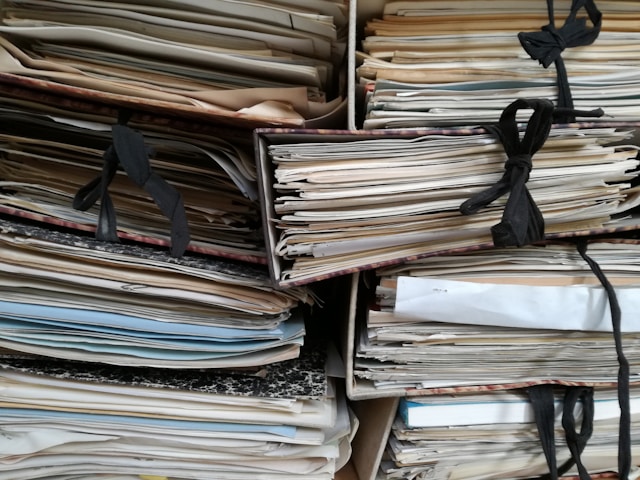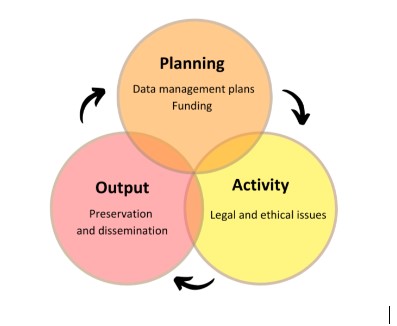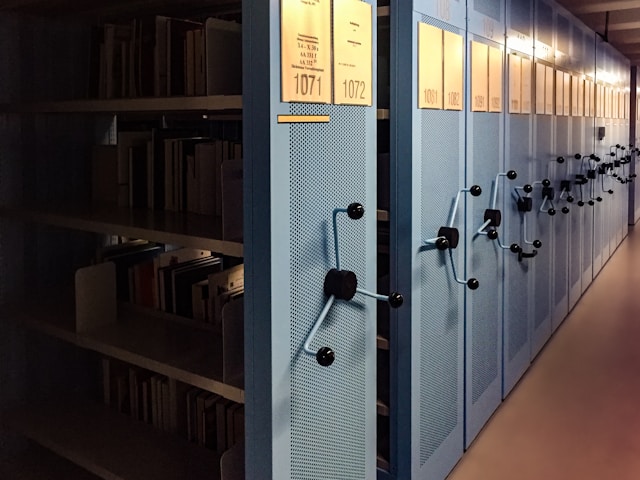What is research data?
“Research data is defined as recorded factual material commonly retained by and accepted in the scientific community as necessary to validate research findings; although the majority of such data is created in digital format, all research data is included irrespective of the format in which it is created.”
(Engineering and Physical Sciences Research Council (EPSRC))

Research data may include any or all of the following:
- Documents (text, Word), spreadsheets
- Laboratory notebooks, field notebooks, diaries
- Questionnaires, transcripts, codebooks
- Audiotapes, videotapes
- Photographs, films
- Collection of digital objects acquired and generated during the process of research
- Data files
- Database contents (video, audio, text, images)
- Models, algorithms, scripts
- Contents of an application (input, output, logfiles for analysis software, simulation software, schemas)
- Methodologies and workflows
- Standard operating procedures and protocols
- Test responses
What is research data management?

Stages of the RDM process:
- Planning
- Activity
- Dissemination and preservation (Output)
Planning
If you are applying for external funding, you will probably be required to write a research data management plan. Once funding has been awarded, researchers must follow their funder’s research data policies. Links to the UKRI funders’ policies can be found on the UKRI website.
Activity
The activity of research data management includes:
- Deciding where to store your data
- Being aware of, and adhering to any legal or ethical issues relating to the data (e.g. compliance with GDPR and Freedrom of Information requests
- Deciding how long to store the data for (this may be dependent on legal or ethical requirements)
- Deciding if/when data should be deleted/destroyed.
You may wish to contact Governance and Legal Services and/or IT to ensure you are complying with CCCU and other policies at this and all stages of the RDM process, and for help with where and how to store your data.

Dissemination and preservation
Repository
Data can be stored and preserved, as well as disseminated, via deposit in the CCCU Research Space Repository. Researchers should choose to deposit their data in another open online repository if their funder requires a digital object identifier (DOI), as these cannot currently be generated by Research Space.
Once the data is deposited in a repository, researchers can share the link to their data as appropriate.
Embargoes
Publishers or funders may require data to be embargoed. In addition, researchers may wish to embargo their data for other reasons, such as it being commercially sensitive. If researchers choose to deposit their data in Research Space, they must inform library staff of any required embargoes by emailing repository@canterbury.ac.uk
Access and sharing
CCCU supports the principles and objectives of open research (including open science). Where possible it will make all forms of output from its research accessible and freely available in ways that allow them to be used and re-used for the benefit of the wider society – please see the CCCU Open Access Policy. To this end, it is important that any underlying data referred to should also be available on the same basis, where appropriate.
Researchers should be prepared to share their data from the start of their projects and follow the FAIR data principles. They should make their data open by sharing it on the Research Space Repository, or other open repositories, such as Zenodo or Figshare.
Researchers should ensure they are following funders’ policies regarding open data.
If you have any queries about storing your data in the repository or open data, please contact library.researchsupport@canterbury.ac.uk. For other queries relating to research data management please contact researcherdevelopment@canterbury.ac.uk.
Featured image by Alexander Sinn on Unsplash
 Library
Library Claire Choong
Claire Choong 1208
1208


